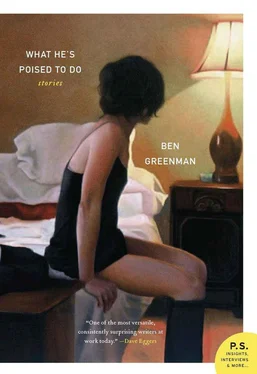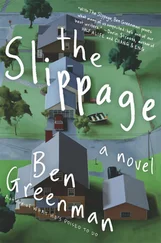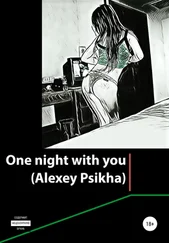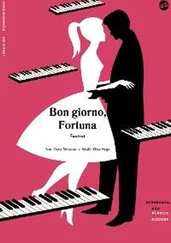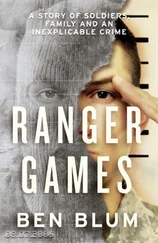11.
In that same letter, Jill told me another piece of information, which was that my father had stopped writing her. This surprised me because I hadn’t received any letters from him since I started college, and I had assumed that he wasn’t writing to anyone. “I got them at a regular clip until last month,” Jill wrote, “and then they stopped suddenly. I had come to depend on them, even though they were growing steadily more boring. A few months ago, he and Catherine took Rebecca to the zoo and then let her nap in the back office at the Hungry Cat while Catherine chalked the specials on the board. I know this because it’s exactly what his letter said. It was so boring that even writing about it is boring. But it was a piece of him. I would like it if you would investigate and find out why he stopped writing. If you don’t want to do it for me, do it for Mom. I’m pretty sure she has noticed that the letters have stopped, and I’m pretty sure that it bothers her. She grew accustomed to seeing them piling up in our rooms. It comforted her, if you can believe it.” I folded up Jill’s letter and slid it to the side of my desk.
Anton came by a minute later, saw the handwriting, and pulled up a chair. “If there’s any way you’d give me another chance,” he said. “I’ll do anything.”
“She can’t hear you,” I said. “It’s a letter.”
12.
I made some calls and read some articles and was able to find out more news about my father. He had gone on a business trip to the Pacific Rim, during which time he had contracted a bacterial infection from shellfish. He recovered from the infection, but it left him weak, and when he returned to the States, he was unable to climb the stairs to his office, even though it was only on the second floor. He took the elevator, and as he was impatient, he pressed the CLOSE DOOR button repeatedly. I mention the CLOSE DOOR button because it was the last button he ever pushed; the elevator panel had been removed and replaced, and the tongue end of a live wire had somehow been connected to the metal plate. The numbered buttons, the ones that instructed the elevator to travel to specific floors, were rimmed in rubber and consequently grounded. The OPEN DOOR and CLOSE DOOR buttons were not. Electricity pierced the tip of my father’s finger. A blue flame traced the outline of his hand. Current ran around his heart, which chased the current until it was exhausted and collapsed. The newspaper account I read mentioned a possible lawsuit. It also mentioned that he was survived by his wife Catherine and his daughter Rebecca. I omitted this bit of information when I wrote to Jill with the news. She called me immediately when she received the letter. She was crying. “I need to go talk to Jack,” she said, and her crying tapered off a bit.
13.
I kept writing letters to Jill. I thought she needed to receive them, and I knew that I needed to send them. Increasingly, though, she responded to my letters with phone calls. I tried to explain to her why this was a mistake, but she wouldn’t listen. As a result of whatever she thought she was feeling with Jack, she was in the mind of doing something new — new for herself, new for the world — and that meant pushing past what I now saw she believed was an antiquated practice. It hurt me at first. We entered a brief period of opposition, which came as a shock to me, not because it arrived with any particular violence but because it arrived at all. It had been a long time since we had allowed ourselves to be enemies. The memory that came back to me most vividly during that time was the moment when I told her that we were eating Goosey; I was wrong to fix on it, of course, but I must have believed that it triggered the entire process that led my father to notice Catherine, to leave the house, to tie a ribbon in Rebecca’s hair, to press the CLOSE DOOR button. For a week or so, I dropped into a deep depression, and my only consolation came from the fact that it was so theatrical that I knew it would not last. Then I met a girl who came from a town very near to where my father had lived, and then Anton started dating her friend, and I was all at once in a new thing of my own. I called Jill when I wanted to talk to her, and though this felt like a concession, it also felt like progress. The only persistent negative effect of the calls was that they brought into sharp relief the fact that I was still not talking to my mother. It had been nearly a year, and she had not asked for me, and I had not asked for her. She would watch as my sister spoke to me, but we were both too proud to end the silence. When Jill told me that she was starting to fail a bit, that she would sometimes forget Jill’s name or insist that my father was just late coming home from work, it should have encouraged me to call directly, but it had the opposite effect. I had broken off talking to my mother while she was still vibrating with hatred for my father and the mayor and love for everyone else. I did not want to find her again only to discover that she had been diminished.
14.
One day, out walking in a neighborhood near campus, I had a very clear vision of the house where I grew up, as seen from overhead: the brown rectangle, the green rectangle, the white fence. In my vision, my mother was there, standing forlornly in a corner of the front lawn, and I suddenly came over with an idea. Since I could no longer write letters to Jill, and since I could no longer speak to my mother on the phone, I would write letters to my mother.
The first one was written with the kind of unthinking innocence that always reveals itself, in time, to be a form of deceit. I decided to type it because my mother had always complained that she could not read my handwriting. I obtained onionskin paper because it was the best lightweight paper available at the campus bookstore. (Perhaps the Shrink Fence would challenge both of these statements.) In that first letter, I affected a more adult tone because I wanted to impress her with my independence. “I know we haven’t spoken for a while,” I wrote. “I wish it weren’t the case. Life in the States is good.” The rest of it was small talk about the news, save for one long sentence at the end where I tried to communicate what I understood of human connection: “The way in which I faded away is unforgivable and I would not blame you if you agreed,” I wrote, “which is why I am not asking that you write back, only that you continue to let me write to you.” I was helping my girlfriend move some furniture at her parents’ house that weekend, and I deposited the letter virtuously in a box at the corner of the street.
A few days later, my mother called me. “Guess what?” she said. “Your father wrote me a letter.”
15.
The monstrosity of this misunderstanding should have compelled me to clarify matters right then and there. Why I didn’t, I will never know. But rather than disabuse my mother of her delusion, I redoubled it. I sent another letter, and this time I clearly took on my father’s persona, right down to the easy eloquence he assumed when painful matters were close at hand. “So much time,” he wrote, “and so little time within that time to make amends. Going backward, well, that is the behavior of a fool, but going forward without acknowledging the ways in which I crippled the past so that it could only hobble into the present, that is the behavior of a villain.” When I mailed that second letter, I was sure that I would be found out, if not by my mother, then by Jill. But Jill was out of the house, and my mother was failing, and this letter was something that she believed in more completely than if it were true. On the phone, she told me that he had written her again. “He moved to the earth,” she said, as if she had forgotten that I lived there, too. She was calling me regularly now, in part because she was rejuvenated by the letters, and in part because she was aging rapidly and forgot the calls almost as soon as she made them.
Читать дальше
